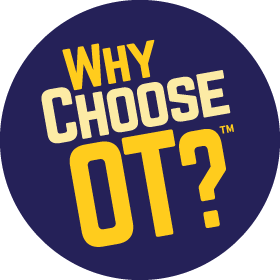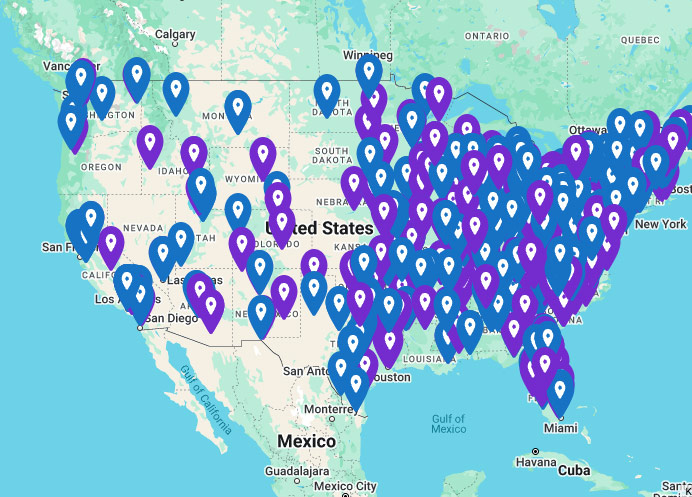Occupational Therapy
A life-changing career for both OTPs and their patients.
Careers in OT are
InspirationalCreativeEmpoweringFunLimitless
Occupational therapy is a healthcare profession that helps people do the everyday activities that matter most to them—like getting dressed, eating, playing sports, learning, or even using technology. OT professionals work with people of all ages to overcome challenges, regain independence, and participate fully in life!
Learn more about occupational therapy and its benefits.
After finishing high school, you’ll go to college and study occupational therapy. Then, you’ll need to pass a national board certification exam to become a professional occupational therapy practitioner and start helping people in hospitals, schools, or other places where they need support.
Lean more about how to become an occupational therapy practitioner.
If you’re thinking about studying occupational therapy, there are plenty of schools that can help you get started. Many community colleges, universities, and colleges have programs for aspiring occupational therapists and occupational therapy assistants. These programs vary, offering associate degrees, entry-level master’s programs, and even doctoral programs. Use our Occupational Therapy Programs directory to search and find OT and OTA programs in the United States that might be the right fit for you.
Are You Someone
Who Likes to…
Be Creative
Help Others
In occupational therapy, you can truly make a difference. Help people overcome challenges, regain independence, and rediscover what matters to them. Whether it’s pursuing passions or daily activities, you’ll be there to empower and support them on their journey back to a fulfilling life.
Be Passionate
Solve Problems
OT is a Field That’s GROWING–
and much faster than other occupations
Occupational Therapists
Employment rates are projected to grow by 14% leading up to 2034.
Occupational Therapy Assistants
Employment rates are projected to grow by 18% leading up to 2034.
Source: U.S.Bureau of Labor Statistics, August 2025
Explore the World of OT
Stay “In the Know”
Sign up to receive our updates and learn more about OT careers!






